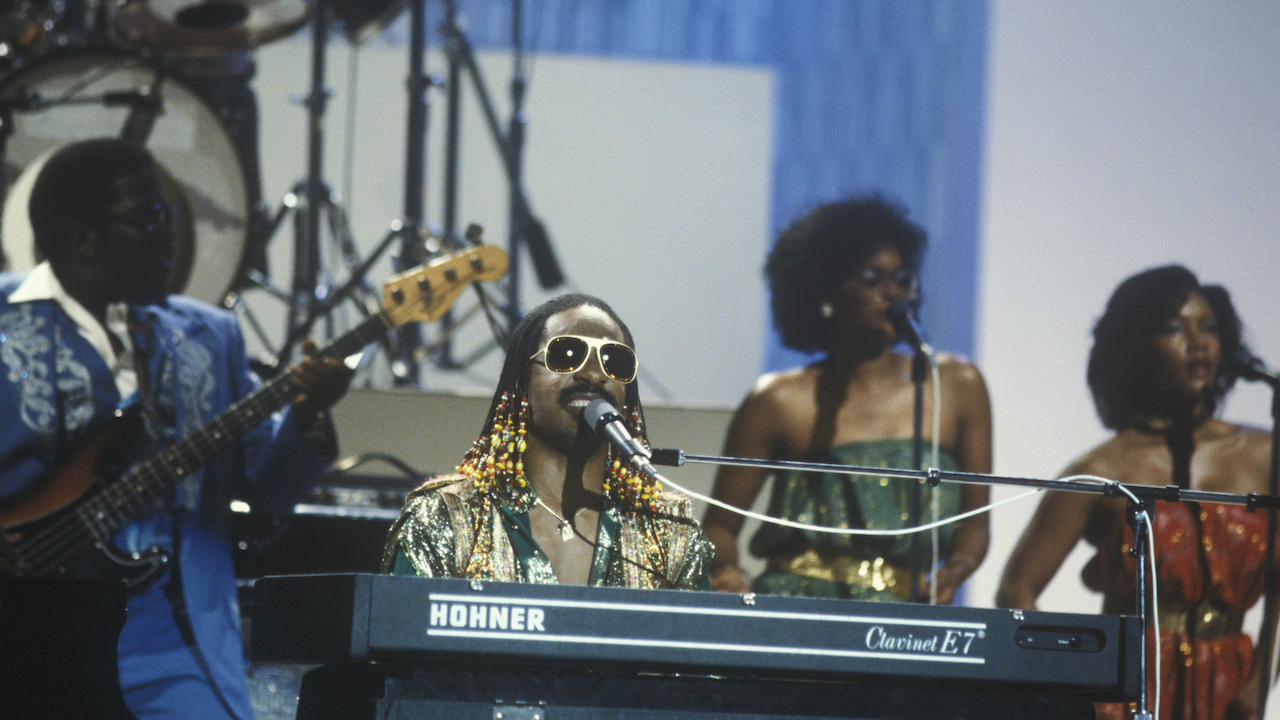Nate Watts picks his top 5 Stevie Wonder basslines
Stevie’s long-serving bassist names his 5 favorite bass grooves, and the James Jamerson line that helped get him the gig

All the latest guitar news, interviews, lessons, reviews, deals and more, direct to your inbox!
You are now subscribed
Your newsletter sign-up was successful
Born on 25th March 1954 in the heart of Detroit, Michigan, Nathan Watts has laid the foundation for some of the most influential music ever recorded. You’ll find him on albums by the Jacksons, Diana Ross, Gladys Knight and the Pips, the Pointer Sisters, Lionel Richie, Herbie Hancock, The Temptations, Sérgio Mendes and Paul McCartney to name just a few. Still, it’s as Stevie Wonder’s long-serving bassist, the man he casually refers to as Steve, that Nate has earned a reputation as one of the world’s most proficient bass players, or as Marcus Miller puts it, “Nate is the Godfather.”
In August 1974 Nate took a call from Stevie Wonder’s office who, following a recommendation from guitarist Ray Parker Jr, wanted to hire him for a gig in Memphis, Tennessee. “I was told to learn as many songs as I could,” said Nate. “There was no rehearsal; we went over a few tunes backstage and we were on. The first two tunes were Superstition and My Cherie Amour, and I was fine. Then they called Contusion, which I’d never heard, and I froze up! I went over and started watching Steve’s left hand and somehow got through it.”

Soon after, just as You Haven’t Done Nothin’ was hitting the radio, Nate became Stevie’s full-time bass player. “I auditioned with two other bassists who were better, more advanced players than me, but I noticed when Steve played a line and asked us to play it back, I was getting it quicker. Knowing the James Jamerson bassline to I Was Made To Love Her on that first concert also impressed him. That ultimately helped me to get the gig.”
For any musician growing up in America in the early '50s and '60s, Detroit was without doubt the place to be. “Living in Detroit you either worked in a factory, went to school or played music. There was nothing else to do, I had to play music! I was listening to guys like James Jamerson, Chuck Rainey and Joseph ‘Lucky’ Scott, who played with Curtis Mayfield,’ says Nate. “They were all very influential players to me.”
For the April 2006 issue of Bass Player, Nate sat down to discuss his top five Stevie Wonder basslines, ranging from an instrumental epic to some all-time classics.
1. Sir Duke (Songs in the Key of Life, 1976)
“We recorded Sir Duke at Crystal Industries in L.A; Stevie rehearsed the whole band, and then we cut it live. I used my 1974 P-Bass with Rotosounds, recorded direct. Stevie had the unison line, which, when I worked it out, required me to bend up the last fret to reach the highest note. Stevie let me come up with the two-feel bassline, and I cut loose a bit on the outro.”
2. Do I Do (Stevie Wonder's Original Musiquarium I, 1982)
“That was done at Wonderland. Stevie was real comfortable with the whole band at that point, so we just went in and jammed and played what we wanted. He gave me more freedom on that song than on just about any other, and with Dennis Davis laying it down strong and simple on drums, there was a lot of room for me to stretch. I used my ’79 MusicMan StingRay, recorded direct, with no effects. The nasty, growly sound is just the tone of the bass guitar, plus the strings being tuned down to Eb, which added more rattle and fret noise."
3. As (Songs in the Key of Life, 1976)
"That was a magical session at the Hit Factory in New York City. I walked in with my P-Bass, and the first person I saw was Herbie Hancock! We all sat there – me, Stevie, Herbie, drummer Greg Brown and guitarist Dean Parks – and just grooved. I’ve never felt anything like it. The song meant so much and the lyrics were so great that as we heard them, we kept taking it up another level. I actually made two rhythmic mistakes – right before the first chorus and right before the last chorus - and I asked Stevie if I could fix them, but he said no, he liked the way they felt.”
All the latest guitar news, interviews, lessons, reviews, deals and more, direct to your inbox!
4. I Wish (Songs in the Key of Life, 1976)
"That was cut at 3am at Crystal on a Jazz Bass I had bought. I had been recording all day, and I had just gotten home and into bed exhausted, when Stevie called and said, “I need you to come back – I’ve got this bad song.” I cam in and he had the 8th note keyboard bassline, so I joined in, adding my Jamerson grace-notes, which he liked. Then he said, ‘Nate, do this,’ and he sang some growly roars – so I started adding my slides. The engineer, Gary Olazabal, suggested I plug into an Ampeg tube preamp, which he drove to get the growl. Other than that, the slides sound angry because it was 3 in the morning!”
5. Contusion (Songs in the Key of Life, 1976)
“Also rehearsed and recorded at Crystal, with my ’74 P-Bass. I had a little experience playing it live, but in the studio Stevie came up with the idea for the intro bassline; he sang the stuttering 16th note rhythm and I just played it.”
Songs in the Key of Life is available to buy or stream.

Nick Wells was the Editor of Bass Guitar magazine from 2009 to 2011, before making strides into the world of Artist Relations with Sheldon Dingwall and Dingwall Guitars. He's also the producer of bass-centric documentaries, Walking the Changes and Beneath the Bassline, as well as Production Manager and Artist Liaison for ScottsBassLessons. In his free time, you'll find him jumping around his bedroom to Kool & The Gang while hammering the life out of his P-Bass.
